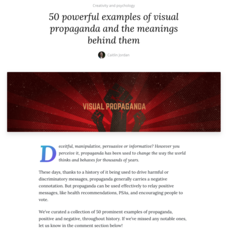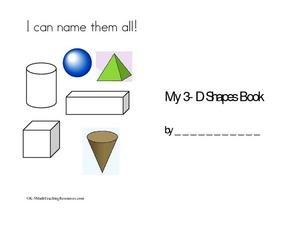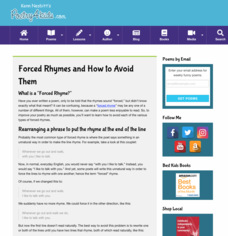Scholastic
Now that You Have Them, What Do You Do With Class Rules?
Establishing classroom rules within the first two weeks of school is important. But what do you do with the rules after they've been created, and how can you establish them so that they have a lasting effect all year long? Use an...
Virginia Department of Education
Physical and Chemical Properties of Water
How can you effectively provide detailed concepts of water properties to your high school class in a way they find exciting and challenging at the same time? By letting them play, of course! Through a variety of experiments, pupils...
Endowment of United States Institute of Peace
Active Listening
Ensure that your pupils listen to one another in constructive ways by introducing them to active listening skills through discussion, role playing, and partner work.
PBS
Using Primary Sources: Wide Open Town
A picture speaks a thousand words, no matter how old! Scholars use political cartoons from the era of Prohibition and the Temperance Movement to analyze what, a primary document (in this case, a bootlegger's notebook) is telling them...
Anti-Defamation League
What are Reparations and Should We Enact Them?
Young social scientists investigate recent legislative proposals for reparations for African Americans. They examine the rationale behind the proposals by viewing videos and reading related articles. To close the instructional activity,...
Curated OER
Apostrophes - How and When to Use Them
Apostrophes are a widely-used punctuation mark. This presentation shows pupils the two main reasons for using apostrophes, then has them test their knowledge by working with examples. Although short, this PowerPoint is packed with lots...
Curated OER
How 'bout them bones!
After a lesson on the human skeleton, hand out a worksheet that requires learners to identify the pelvis, rib cage, skill, spine, and thigh bones. They draw a line from the name of the bone to its location on the skeleton. Tip: Instead...
Flourish N Thrive Counseling
A Volcano in My Tummy (Helping Children to Handle Anger)
Sometimes it's hard for kids to express their anger appropriately, or to understand what is happening to their bodies when they feel angry. An insightful instructional activity about anger management can help them identify angry...
EngageNY
Using Trigonometry to Find Side Lengths of an Acute Triangle
Not all triangles are right! Pupils learn to tackle non-right triangles using the Law of Sines and Law of Cosines. After using the two laws, they then apply them to word problems.
Canva
50 Powerful Examples of Visual Propaganda and the Meanings Behind Them
Propagandists have many tools at their disposal to influence thinking and behavior. Among the most powerful are the visual tools, posters designed to grab the attention and stir the emotions of viewers. Check out this collection of...
National Constitution Center
Creating Your Own Town Hall Poster
Middle and high schoolers are walking into a world rife with strong political viewpoints and vocal opinions. Help to prepare them for controversial discussions with a lesson in which they choose, research, and learn more about a...
Concord Consortium
Seeing Intermolecular Attractions
Ahh, the rules of attraction...intermolecular attraction! Introduce your chemistry crew to the other forces that influence the behavior of atoms and molecules alike with a simple interactive. Pupils push and pull polar and non-polar...
Facing History and Ourselves
Bio-poem: Connecting Identity and Poetry
Writing a bio-poem is a great way to have young scholars go below the surface and reflect on who or what has made them who they are. Check out this richly detailed lesson that provides step-by-step directions for crafting a bio-poem.
Curated OER
Creating Historians: Send Them Out
Get teenagers out of the classroom in the pursuit of history; part three of a series on approaching social studies as a group of historians.
Curated OER
Now You See Them, Now You Don't
Learners explore the settlement of the Roanoke Colony. They research this Lost Colony and try to predict what happened to them.
Curated OER
Number Puzzles: Finding ways to solve them
There are four different word problems (number puzzles) for learners to solve. Each one requires them to think critically about the operation they'll need to use and encourages class discussion. Use as a warm up or prior to a lesson on...
Curated OER
I Can Name Them All!
Six 3-D shapes are featured in this figure-recognition book template. As they create a "My 3-D Shapes Book," young scholars place shapes on the appropriate pages, which already have text indicating the shape and its color. Although it is...
Common Sense Media
Private Today, Public Tomorrow
What responsibility do we have to protect the privacy and safety of others when posting information about them online? This is an essential lesson for every learner today experiencing their social and professional worlds in an online...
National Park Service
Nutcracker Fantasy
The Clark's nutcracker bird hides seeds in 25,000 different sites every year to save for winter. Lesson demonstrates how difficult it would be to find these seeds months later when they need them for food. In the first of five lesson,...
Curated OER
Close Reading Passages of Literature
Encourage kids to think deeply about what they are reading with five thought-provoking questions about one passage. After choosing a passage that is intriguing or confusing to them, learners write a summary, explain what they like or...
Curated OER
A Day at the Circus Fill-Them-In Tale
In this fill in the blanks worksheet, students will fill in the blanks to complete a story about a day at the circus. This is similar to Mad Libs.
Curated OER
Aha! Moments...Celebrate Them
Setting aside a special time to share accomplishments brings learning to life.
Poetry4kids
Forced Rhymes and How to Avoid Them
Ready to take your poetry writing to the next level? Use an independent lesson to iron out all those forced rhymes, wrenched rhymes, and near rhymes from first-draft poems.
Curated OER
Let the Phone Get Them Talking! Using the Yellow Pages as a Teaching Resource
Students categorize information in the Yellow Pages. In this Let the Phone Book Get Them Talking! lesson, students find pictures in the Yellow Pages and thus gain a better understanding of how the book is organized. Students locate local...
Other popular searches
- Five Themes of Geography
- Thematic Units
- 5 Themes of Geography
- Thematic
- Art and Music Theme
- Five Themes
- Circus Theme Preschool
- Teaching Theme in Literature
- Compare and Contrast Themes
- Themes
- Apple Theme
- Farm Animals Theme

























